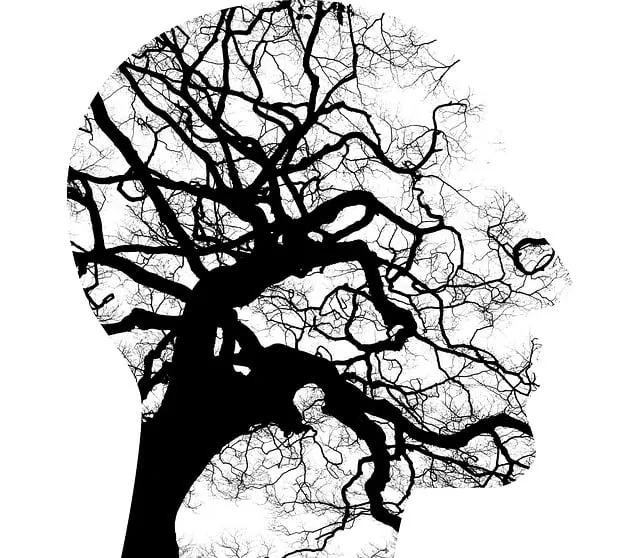Cultural competency in healthcare is crucial, especially in diverse areas like Parker. Kaiser Permanente's study shows culturally sensitive practices improve mental health outcomes. Their dedicated psychiatry line and training programs empower professionals to navigate cultural barriers using role-playing and community engagement. Compassion Cultivation Practices enhance sensitivity and address biases for respectful care. Regular assessments tailor training to reduce stigma and improve communication for diverse patient needs. Contacting Kaiser Permanente for psychiatry in Parker supports culturally competent care.
Cultural competency training is an essential aspect of modern healthcare, especially with diverse patient populations. This article explores the significance of cultural competency in healthcare, focusing on mental health professionals. We delve into successful training programs like Kaiser Permanente’s approach and provide strategies to overcome barriers.
Learn how assessment and improvement methods measure success, offering valuable insights for healthcare providers, particularly those interested in psychiatry services, such as the Kaiser Permanente psychiatry phone number in Parker.
- Understanding Cultural Competency in Healthcare
- The Role of Mental Health Professionals
- Kaiser Permanente's Approach to Training
- Overcoming Barriers: Strategies for Providers
- Measuring Success: Assessment and Improvement
Understanding Cultural Competency in Healthcare

Cultural competency in healthcare refers to the ability of healthcare providers to effectively communicate and deliver services that meet the diverse cultural needs of patients. This involves understanding and respecting different cultural beliefs, values, and practices, as well as being able to navigate potential language barriers. It’s a crucial aspect of modern healthcare, especially given the increasing diversity of patient populations across regions like Parker, where communities are becoming more globally connected.
For example, consider the impact on mental health care. A study by Kaiser Permanente revealed that culturally sensitive practices can significantly improve patient outcomes in psychiatry. By incorporating self-awareness exercises and conflict resolution techniques, healthcare providers can build trust and ensure that patients from diverse backgrounds feel heard and understood. This cultural sensitivity is a game-changer in fostering effective treatment plans, ultimately leading to better health outcomes.
The Role of Mental Health Professionals

Mental health professionals play a pivotal role in healthcare provider cultural competency training, especially when addressing the complex issues surrounding mental illness and its impact on diverse communities. With organizations like Kaiser Permanente emphasizing the importance of inclusive care, these specialists are equipped to facilitate meaningful conversations and educate colleagues about Mental Illness Stigma Reduction Efforts. By integrating Mind Over Matter principles, they empower patients and staff alike to navigate challenging topics with empathy and understanding.
In Parker and other regions, training programs often focus on enhancing cultural sensitivity towards various mental health conditions, including those often misunderstood or stigmatized. Through interactive workshops and sharing best practices, professionals learn effective Stress Reduction Methods tailored to different cultural backgrounds. This holistic approach ensures that every patient receives compassionate, culturally responsive care, fostering an environment where minds can truly heal.
Kaiser Permanente's Approach to Training

Kaiser Permanente, a leading healthcare provider, has recognized the importance of cultural competency training and implemented a comprehensive program to educate its staff, particularly in the area of mental health care. Their approach focuses on fostering an inclusive environment and improving patient outcomes by addressing diverse cultural needs. Through interactive workshops and seminars, Kaiser Permanente trains its psychiatrists and other mental health professionals to navigate complex cultural nuances. This includes learning about different ethnic and racial backgrounds, religions, and socioeconomic factors that may influence a patient’s experience and treatment preferences.
The organization’s training initiative goes beyond traditional education by incorporating role-playing scenarios and community engagement. For instance, they organize events in diverse communities to enhance public awareness campaigns related to mental health, such as Depression Prevention and Inner Strength Development. This hands-on approach ensures that healthcare providers are equipped to handle a wide range of cultural challenges and better serve their patients, especially those from varied backgrounds, like those in Parker, Colorado.
Overcoming Barriers: Strategies for Providers

Overcoming barriers to providing culturally competent care is essential for healthcare providers, especially in diverse communities. One effective strategy involves enhancing cultural sensitivity in mental healthcare practice through Compassion Cultivation Practices. These techniques foster empathy and understanding, enabling providers to connect with patients from different backgrounds and experiences, such as those seeking psychiatric services at Kaiser Permanente facilities in Parker or other areas.
By integrating self-esteem improvement techniques into their training, healthcare providers can address personal biases and preconceived notions. This self-awareness is crucial for creating an environment where every patient feels valued and respected. Ultimately, these strategies not only improve patient outcomes but also enrich the experience of caregiving, making it a more fulfilling profession.
Measuring Success: Assessment and Improvement

Measuring success in healthcare provider cultural competency training is a multifaceted process that involves assessment and continuous improvement. Organizations like Kaiser Permanente, known for their psychiatry phone services in Parker, utilize various tools to gauge the impact of such programs. This includes pre-and post-training surveys to evaluate knowledge gain and attitudinal shifts among participants. The data collected from these assessments provides insights into areas where training has been effective and identifies gaps that need addressing.
Effective cultural competency training should not only enhance knowledge but also foster better communication strategies, mental illness stigma reduction efforts, and emotional intelligence—key components in delivering culturally sensitive care. By regularly reviewing assessment outcomes, healthcare institutions can tailor their training programs to meet the evolving needs of diverse patient populations, ultimately improving overall quality of care.
Cultural competency training is a critical component in delivering quality healthcare, especially in diverse communities. As highlighted by Kaiser Permanente’s innovative approach in Parker, such programs equip mental health professionals with the skills to navigate complex cultural landscapes and provide personalized care. By understanding cultural nuances, overcoming barriers through strategic interventions, and measuring success through assessment, healthcare providers can significantly improve patient outcomes and foster more inclusive environments. This article serves as a starting point for further exploration of these essential training methodologies.






